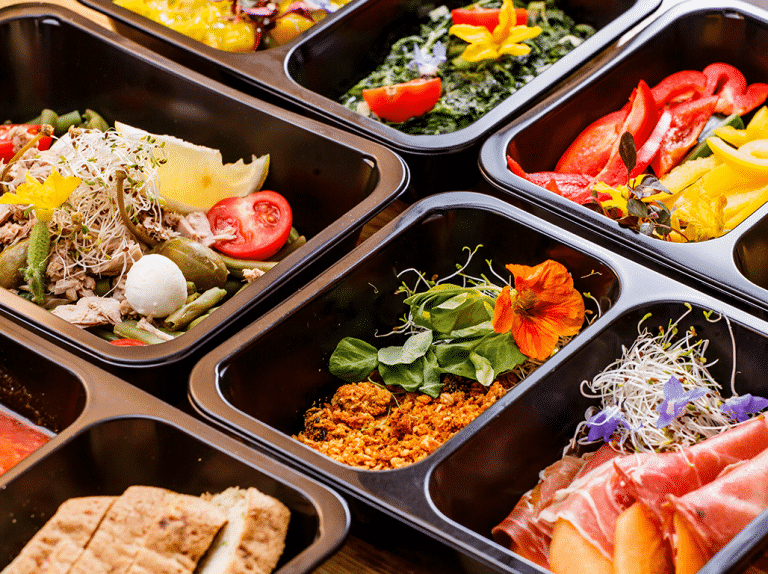Food recovery turns out to be as important as sobriety. After two years of sobriety, I found myself 150 pounds overweight and miserable. I wasn’t eating to recover. I was eating the way I used to use substances. I’ve had food issues all my life. Now, without my trusted drugs of choice to ease my pain, the only solace I found was in food. I was sober, but binging my way into an early grave. Did you know that 87 million Americans are obese. If you have a problem with constant eating, you may have a food addiction.
Stress eating is also a reason for weight gain that just won’t respond to any diets and it would be hard to lose weight unless if you’re planning to have a Private Weight Loss Surgery. Stress eating is more frequent for everyone now in Covid 19. People are looking for comfort when life is shut down in so many ways.
How Food Recovery Can Work
The key to sustained recovery from food addiction is for people to be honest, open-minded and willing; treatment only becomes effective when the individual becomes willing to surrender to the reality of their current condition. It is important for the person struggling with food addiction to gain an understanding of what’s driving his or her compulsive eating and/or eating behaviors in the first place, whether the unmanageable cravings, poor eating habits or dysfunctional thought processes. usually associated with addiction. Food Addiction Institute
Bingeing Is One Form Of Food Addiction
One behavior of food addiction is called Binge Eating Disorder. BED is a thing. I couldn’t understand why I was binging on copious amounts of highly processed foods: cakes, pastries, chocolate, breads, cheese. I’d spend time in meetings fantasizing about what I was going to get to eat on the way home. Sometimes, I’d leave the meeting early because I couldn’t wait to get to the store.
Food Recovery Means Addressing The Food Addiction
When I got help with food, and trained as a nutrition coach myself, I fully understood that binging behavior—just like addiction—was out of my control. It was my brain’s way of saying that I had a chemical imbalance, and it overrode the rational part of my brain rendering me somewhat powerless over my actions. Sound familiar? It is just the same as substance use disorder.
Certain foods can release the same chemicals as drugs. When we get sober, we simply transfer the addiction—but it is so subtle, that we don’t always realize that we’re doing it. And what makes matters worse is that we punish ourselves for it, and even label it as gluttony—a defect of character.
But, as I’ve explained, the brain is far more sophisticated than that. It has nothing to do with character defects, and everything to do with healing our whole selves by eating well. Food recovery for me has to be a holistic approach. I need to fuel my body in order to be well, and feel well. That is what gives me a lust for life; it is what helps me jump out of bed in the morning and seize the day—well, most days.
Getting help for a food disorder is necessary to stop the cycle and address the problems once and for all. For weight loss burn fat. For recovery eating, here are the very best foods to eat and feel good, not guilty.
5 Ways To Eat For Food Recovery
- Eat Fruits and vegetables: Foods high in nutrients–whole fruits and vegetables in a range of colors– can help speed up the healing process from the damage caused by substance use disorder.
- Don’t Eat processed foods: Processed foods are anything that is packaged. Boxed or frozen meals: macaroni cheese, TV dinners, cookies, candy, sodas, pre-made sauces and dressings are all processed foods. By not eating them, you can avoid the energy spikes and crashes—which only create a craving for more. These foods are high in salt, sugar and trans fats which are not great for overall health. In fact, this food (also referred to as highly palatable) has been manipulated by scientists that much that they can override the rational part of your brain–this is why you look down and wonder how you’ve even a whole pack of cookies. Ditch cookies and TV dinners, in favor of fresh fruits and vegetables.
- Eat These Good Mood Foods: Turkey, chicken, pumpkin seeds, nuts, oats, cottage cheese—contain tryptophan. This is used by the body to produce serotonin—a chemical which helps produce healthy sleep and a stable mood.
- Amp Up Your Immunity: Fruits and vegetables in particular can improve immunity, thus warding off colds and viruses—or if you do get them, it can reduce the illness duration.
- Eat whole, natural and unprocessed foods: They will reduce your risk of relapse due to depression and fatigue. Eating whole, natural, and unprocessed foods, your body is more likely to get both the nutrients and energy it needs to function optimally.





















